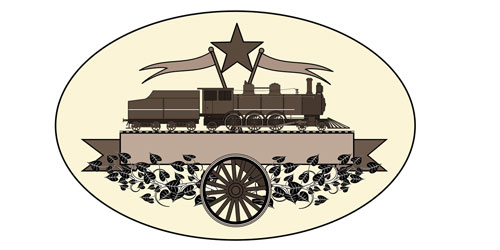《论语诠解英文版》——Chapter I "学而"(Xue'er)
The title of this chapter consists of two characters, "学而" (xue'er), which were selected from the first line of the chapter: "学而时习之,不亦说乎?” This strategy of using one or two characters from the first lines of an essay or a book as the title for the work is typical of classical writings in ancient China. The following chapters in the Analects all employ this style.
Chapter I consists of sixteen sections, which focus on important Confucian ideas including human-kindness, benevolence, truthfulness, trustworthiness, and filial piety.
[l. l ] 子曰:“ 学而时习之,不亦 说乎?有朋自远 方来, 不亦乐乎? 人不知而不惺,不亦君子乎?”
1.1 The Master said: "Isn't it a pleasure if my thought is recognized by soci ety and is put into practice? Isn't it delightful to have friends who share my ideas coming in from distant places? If society does not accept my ideas and no one understands me, yet I do not feel dismayed, isn't it that I am still a man of virtue?"
[Comment] "学 xue" can be used as a verb to mean "study" or as a noun to convey the notions of "scholarship," "learning," or "theory." Here, it is used as a noun to refer to "knowledge," "ideas," as well as thoughts on human- ity and society. "而 矿 can be interpreted as "if," "assuming," or "on the assumption." "时 s hf" implies "opportunity," "oftentimes" or "era," which in this context may also suggest "世 s hl" (epoch), that is, "the present-day world." " 习 xf" translates as "to apply" or "to put into practice." " 说 yue" is used interchangeably with "悦 yue" (happiness), which means "喜悦 xT yue" (joyful and happy), and "高兴 goo xlng" (pleased and delighted). " 有朋 yo u p的 g" is the same as "友朋 yo u p的 g", which also means "朋友p 的 g you" (friends).
[Reading] In this section Confucius, the Master, advocated the fundamental concept of "君子 Junzi," one that is repeatedly emphasized throughout the Analects. According to Confucius, "君子Junz i" is an ideal man of a superior moral position, true virtue, and ethical values. As it is used in the Analects, the term generally refers, among others, to men of great learning, prominent social status, and self-cultivation. Zhu Xi (1130-1200 AD), one of the most outstanding exponents of Neo-Confucianism, highly praised this particu-
lar section, regarding it as "the gateway to the Way and the cornerstone for establishing perfect virtue."
[I. 2] 有子曰: “其为人也孝弟,而好犯上者,鲜矣;不好犯上, 而好作乱者,未之有也。君子务本,本立而道生。孝弟也者,其为仁 之本与!”
1.2 You Zi said, "It's very rare that filial and fraternal men would offend against their superiors. It's unheard of that men who do not want to offend against their superiors would stir up trouble. A man of superior ethical val ues focuses on establishing a solid foundation, from which to derive the right way of caring for others, cultivating oneself and finally governing a country with benevolence. Filial piety and fraternal duty should be the basis for all benevolent behaviors."
[Comment] " 有 子 yo u zT" was a disciple of Confucius. His family, given, and courtesy names were "有 yo u," " 若 ruo ," and "子有 zT you," respec tively. In addition, he was posthumously respected as " 有 子 yo u zT." The concept of " 孝 弟 xia o tl" urges one to "be filial to one's parents as well as fraternal to one's elder brothers." " 鲜 xia n" can mean both "rare" and
"barely." "道da o ," which originally referred to "path or way," here, is ex tended in its sense to imply an "abstract concept of ethical values," which illustrates the way men of true virtue care about others and cultivate them selves in order to lead a country with superior moral force and benevo- lence. "为仁 wei 毛n" means "performing acts of human-kindness." " 为" is a verb, whereas " 与 yu" is used interchangeably with " 欤 vu" .
[Reading] This section emphasizes the importance of enacting human-kind ness and benevolence. "仁 Ren" remains one of the core values and beliefs of Confucianism, whereas "孝梯 xia o tl" (filial piety and fraternal duty) constitutes the foundation of" 仁 Ren." The Classic of Filial Piety (《孝经》xiao jTng), a collection which is believed to have been compiled by Confu cius and his eminent disciple, Zengzi, advocates the significance of govern ing a country with the principles of filial piety and fraternal duty.("以孝治天下" yT xiao zhl tian xia)
[l. 3] 子曰: “ 巧言令色, 鲜矣仁!”
1.3 The Master said, "Those who are adept at using adulatory words and are of insinuating appearance rarely possess true virtue."
[Com ment] "巧言 q ia o y6n" means "adulatory and sycophantic language," while "令色 ll ng se" translates as "hypocritical." "鲜矣仁 xia n yT 伦n" is the reverse order of "仁鲜矣 r的 xia n yT," in which the predicate " 鲜 xia n" is pre-positioned. 汉人“包咸boo xi6n ," a renowned Confucian scholar (7 BC - 65 AD) of the Han Dynasty (206 BC -220 AD), said: " '巧言qia o y6n'are'fawning and honeyed expressions ,' whereas ' 令色 ll ng se'refers to one who is adept at decorating himself in order to please others and win favor from them." In either case, according to Confucius, such people as these rarely possess "仁 r的 " (true virtue).
[Reading] Confucius believed that a man of complete virtue should be one of sincerity, trustworthiness, and ethical values. While the previous section illustrates the core concept of "1 二 Ren" that has filial piety and fraternal duty as its foundation, in this section Confucius advocated against the opposite of
"1 二 Ren" 一 hypocrisy and insincerity.
[I .4 ] 曾子曰: “ 吾H 三省吾身: 为人谋而不忠乎?与朋友交而不信乎?传不习乎?”
1.4 Zeng Zi said: "I daily examine myself to see: whether I may not have been faithful and dutiful enough when I do things for others; whether I may not have been truthful enough to my words when I interact with my friends; and whether I may not have practiced what my teacher has instructed me to do."
[Comment] "曾子洷ng zT" was a disciple of Confucius, whose courtesy name was "子舆 zT yu." "三省的n xTng" means "reflect on oneself many times." Here, " 三 s on" does not necessarily mean precisely "three times" but implies "many times." "谋 m6 u" connotes "doing things." "忠zho ng" suggests "loyalty." " 传 c hu6 n" implies "what my teacher has instructed." " 习xf" means "put into practice."
[Reading] This section is about how Zengzi reflected on himself, especially in how he related to others. It was Confucius'belief that by reflecting upon oneself, a person would be aware of the necessity of exercising himself to the fullest in self-cultivation. This would insure his attainment of the highest virtues—obligation,truthfulness, sincerity, trustworthiness, and the determi
nation to do the right thing in all situations.
[l. 5] 子曰: “道千乘之国,敬事而信,节用而爱人,使民以时。"
1.5 The Master said, "To rule a big country with one thousand chariots, the ruler should be serious, sincere and honest. He should be frugal in expendi ture and care for his people. When he drafts labor, he should not ignore farming seasons."
[Comment] "道 dao" is sometimes used interchangeably with "导 dao" to mean "guide," "rule," or "govern." "千乘之国 qia n s h的 g zhT gu6" refers to a "state in possession of at least one thousand chariots." These chariots of Confucius'time were drawn by four horses, and by this criteria, a country with a thousand chariots must be a powerful one indeed."节用 jie yong" translates as "frugal in expenditure," while " 爱人 a i r的 " means "love for people." In its broadest sense, "人 治n" refers to people of all walks of life. However, in a more narrow sense— as in this context—“人 r的 " re fers to people of the class of "official-scholars" and above. The society in which Confucius lived was based exclusively on agricultural activities and there- fore "使民以时s hT min yT shf" should be translated: "Mobilizing a state by drafting labor should not interfere with farming seasons."
[Reading] In this section Confucius discussed how to govern a large coun try effectively. He focused on three important aspects of good government: accountability, frugality, and care for the people of the country.
[I. 6] 子曰: "弟子,入则孝,出则涕,谨而信,泛爱众,而亲仁。行有余力,则以学文。"
1.6 The Master said, "At home young men should be filial to their parents. When they are in society, they should be respectful to their elders. They should be cautious, respectful, honest and truthful to their words. They should love all inclusively and make friends with men of superior moral force. After all this is done and when they still have time, they should con tinue their studies including "Rites, Music,Archery, Charioteering, Calligra phy, and Mathematics."
[Comment] Originally, " 弟 子 d1 zT" meant "younger brothers" or "sons." However, in this context, the term refers to young people in general, includ ing the Master's disciples. " 泛 fa n" means "all, or all-inclusive." "亲仁qTn 伦 n" connotes "to get close to men of true virtue and ethical values." " 文w的 " refers to "classics, as well as ' 六艺 li u y1': (Rites: 礼 IT), (Music: 乐 yue), (Archery: 射 s h创 (C harioteering: 御 yu), (Calligraphy: 书s hu), and (Mathematics: 数 s h u). "
[Reading] In Confucius'view, men should take virtue as the supreme prin ciple of morality and they should always strive to perform acts of true virtue. After all this, when they still have time and opportunity, they should study, among others, the Six Arts: "Rites, Music, Archery, Charioteering, Calligra phy and Mathematics."
[l. 7] 子夏曰: '贤贤易色;事父母,能竭其力;事君,能致其身; 与朋友交,言而有信。虽曰未学,吾必谓之学矣。"
1.7 Zixia said: "One should pay attention to his wife's inner qualities and virtues rather than her outward appearance. When serving parents, one should exercise himself to the fullest. When working for one's superior, one should be willing to sacrifice his life for him. When interacting with friends, one should be sincere, earnest and truthful. I regard such one as well-educat ed and cultivated even though he may not have any formal education."
[Comment] "子夏 zT xia" was a disciple of Confucius. "贤贤易色 xi6 n xi6n yl se" can be translated as "pay attention to one's inner qualities rather than one's appearance" or, as in this context, "pay attention to one's wife's inner qualities and virtues rather than her outward appearance." The first "贤xi6n" is used as a verb to indicate "respect," while the second " 贤 xi6 n" is a noun, referring to "people of excellent qualities." According to the first Chinese dictionary《说文 解字》(s huo wen jie zl, Etymology of Chinese Characters) composed by 许慎 ( xu s h的 )(58-147 AD) of the Han Dynas ty (206 BC-220 AD), " 竭 jie" means "one should try all his best when lift- ing up something." As such, "竭" also implies "尽 jln ," that is, "to do things to one's best ability." " 致 zhl" means both "to give" and "to present to."
[Reading] In this section, Zixia, one of the leading disciples of Confucius, emphasized the importance of paying attention to substance rather than ap pearance. He argued that learning was not its own purpose. Rather, the ob jective ofleaming is first to learn to be a man of fine character, which is the core value of the Confucian education.
[1. 8] 子曰: “君子不重则不威,学则不固。主忠信,无友不如已者。过,则勿惮改。"
1.8 The Master said: "If the noble man of superior moral force is not solemn and grave, he would not be awe-inspiring and would therefore not inspire veneration from others. When he pursues learning and knowledge, he is not opinionated and narrow-minded. He values loyalty and trustworthiness as being most important and keeps a distance from those who are beneath his moral position. When he is aware of his own mistakes, he is ready to correct them."
[Comment] "重 zho ng" can be translated as "solemn" and "imposing," "威wei" means "awe-inspiring," and " 学 xue " "learning." In the context here , " 学 xue" implies "dedication and commitment to learning." "固 g u" connotes "opinionated" and "narrow-minded," whereas " 主 zhu" suggests "regarding something to be of primary importance."" 友 yo u" means "to become friends" and "惮 don" suggests "fear" and "panic." As a result then, one can translate "无友不如己者 W U you bu ru jT zh 色" as "do not make friends with people who are not of one's own moral caliber." Here, "无 wu" is equivalent to "毋 wu ," implying "do not."
[Reading] This section promotes the concept of " 君子Junz i" (the noble man of true virtue) and the qualities "君子 Junzi" should possess: a solemn and grave manner, a commitment to learning, truthfulness and loyalty to ward one's friends, self-reflection, among many others.
[l. 9] 曾子曰: "慎终追远,民德归厚矣。"
1.9 Zengzi said: "If people seriously perform the funeral rites to their par ents and carefully execute the sacrificial ceremonies to their ancestors, social morale would therefore be boosted and people's ethical awareness would be enhanced."
[Comment] "慎终追远 s h却 zho ng zhuT yuan" translates as "to perform the funeral rites and the sacrificial ceremonies to parents and ancestors." '才真终 s h 却 zho ng" is "to pay careful attention to funeral rites." On its own, “终 zho ng" indicates the phrase "when one just died." "追远 zhu T yuan" connotes "in memory of one's ancestors," which alters the phrase to indicate the dutiful performance of sacrificial ceremonies to them. Lastly, " 厚 ho u" suggests "enhanced virtues."
[Reading] The rites of propriety, particularly the execution of sacrificial ceremonies to ancestors, remain one of the important concepts of Confu cianism. Confucius believed that if men in high positions would carefully and deferentially observe and execute the sacrificial ceremonies of venerat ing ancestors, people would follow them and thus social morale would be enhanced. To Confucius, ancestor worship constitutes an important part of filial piety.
[1 . 10] 子禽问千子贡曰: “夫子至千是邦也,必闻其政。求之与, 抑与之与?”子贡曰:“夫子温、良、恭、俭、让以得之。夫子之求之也, 其诸异乎人之求之与!”
1.10 Ziqin asked Zigong: "When the Master comes to a state, he knows about its government. Does he ask for his information, or people give it to him?" Zigong said: "Our master receives his information because he is be nevolent, kindhearted, respectful, moderate, and humble. This is probably how he distinguishes himself from others in obtaining information."
[Com ment] "子禽 zT qf n" and "子-贝=- 21V gong" were both disciples of Con-fucius. The first was a native of the State of Chen, while the second came from the State of Wei."是邦 s hl bang" translates as "this state," while "政zh却 g" connotes "politics" or "sociopolitical affairs."" 抑 y1" means "or." "其诸 qf zhO" is used here as an adverb, implying "probably, perhaps."
[Reading] The conversation between Ziqin and Zigong reveals how their Master related to others. That the Master was respected by the princes of the states he visited, points to his excellent qualities as a superior man of true virtue as discussed in the section. Of the five exceptional attributes the Mas ter possessed, "humility" stands out as the defining character, which says much about him as a "君子 Junzi."
[l. 11] 子曰: “ 父在, 观其志; 父没, 观其行; 三年无改千父之道, 可谓孝矣。"
1.11 The Master said, "Observing a man, it is important to see what kinds of aspirations he has while his father is alive. After his father dies, it's impor tant to see how he performs funeral rites to him. If he diligently executes his duties for three years, without deviating from the way of his father, he can be said as a filial son."
[Comment] "其qf" refers to "the son," and " 没 mo " translates as "death."
"二_ 年 son .n,1an" refers to the custom—m Confucms' time—o f servmg a three-year mourning rite to one's deceased parents. Therefore, "千父之道 yu fu zhT dao" connotes the traditional funeral ntes and ceremomes of sacrifice in the Zhou Dynasty (1046-256 BC).
[Reading] This section discusses what is called "behaviors of a filial son." Conscientious observation of a three-year mourning rite to one's deceased parents is, from Confucius'perspective, an important indicator of virtuous filial children.
[I . 12] 有子曰: “礼之用,和为贵。先王之道,斯为美,小大由之。有所不行,知和而和,不以礼节之,亦不可行也。"
1.12 You Zi said: "The objective of performing rites is to secure a harmoni ous relationship. This is how the ancient sage kings governed their country. They carefully observed this principle while handling state affairs, be they significant or less significant. If they failed to succeed it is only because they pursued harmony for its own sake, instead of regulating it with rites."
[Comment] " 有子 yo u zT "was a disciple of Confucius. "和 he" im plies"和合 he h色" that is, "a harmonious human relationship.""斯 s1"means "this," here referring back to "和为贵 he wei g ul." " 由之y6 u zhT" indicates "use this as a point of departure" or "act on this principle." Meanwhile, " 知 和 而 和 zhT he er h 兮 suggests "pursuing harmony for its own sake" and " 节 jie" indicates "to restrain, and to regulate."
[Reading] This section discusses the application of rites by emphasizing the importance of establishing a harmonious relationship through the rules of propriety. It also warns against establishing harmony just for its own sake.
[1. 13] 有子曰: “信近千义,言可复也。恭近千礼,远耻辱也。 因不失其亲,亦可宗也。"
1.13 Youzi said: "When a promise is made in accord with what is right and proper, it can be fulfilled. Deference and reverence are due in accord with rites and rituals, therefore they enable us to avoid shame and disgrace. When one makes friends with trustworthy people whom he is supposed to, we can say he himself is a trustworthy man."
[Comment] "近 j]n" means "靠近的o j]n," implying, in a broad sense, "to comply with" or "in accordance with."" 复 fu" c onnotes"再 za i ," meaning "to be applied" or "to be fulfilled." "远 yua n" has two possible implications.
Firstly, as a noun it may refer to "distance in space, " while secondly, as a verb it might mean "to depart, to leave for a distant place." " 因 yTn" sug- gests "rely on, depend on," while " 亲 qTn" indicates a person who is "worthy of being close to."
[Reading] This section discusses how to relate to people. According to Youzi, who was instructed by the Master, two principals were of paramount significance if one hoped to successfully relate to people: trustworthiness and deference.
[1. 14] 子曰: “君子食无求饱,居无求安,敏千事而慎千言,就 有道而正焉,可谓好学也巳。"
1.14 The Master said, "The noble man of true virtue does not seek to gratify his appetite, nor does he indulge himself in comfortable dwelling. Rather, he is diligent in what he is doing and cautious in his speech. By making friends with people of paramount virtue and learning, he seeks to rectify himself. We regard such a person as one who truly loves to learn."
[Comment] "就 jiu" implies "to get close," "正 z陡 ng" can be translated as "to correct, rectify." " 也已 ye yT" is a modal particle, here used to suggest the action "to confirm."
[Reading] In this section Confucius described the moral standards required of a noble man of virtue. According to Confucius, such a man should seek to reduce his desires and thereby enhance his moral character.
[I . 15] 子贡曰: “贫而无谄,富而无骄,何如?”子曰: “可也。未若贫而乐,富而好礼者也。“子贡曰: ”《诗》云: `如切如磋, 如琢如磨',其斯之谓与?“子曰: "赐也,始可与言《诗》已矣, 告诸往而知来者。"
1.15 Zigong asked, "What do you think of a person who, though poor, does not flatter and who, though rich, is not arrogant?" The Master said: "He is good, but not as good as a person who, though poor, is still cheerful and who, though rich, still loves to learn about proprieties." Zigong said: "The Classic of Odes mentions'cutting and filing, carving and polishing.'I un derstand it to be what you just talked about." The Master said: "Wonderful, now I can begin to discuss the Odes with you. With what I tell you, you can induce and bring about things by inference."
[Comment] "i 自: c ha n" translates as an attempt to "win favor from influen-tial people by flattery." " 骄 jia o " connotes "arrogance" or "self-aggran dizing." " 已 矣 yT yT" is a compound modal particle, usually used at the end of a sentence, whose meaning closely resembles that of "矣 yT," but has a more emphatic connotation. " 告 诸 往 goo zhu wang" means "to tell him about the past."
[Reading] It is Confucius'wish that all his disciples remain happy whether they were rich or in poverty. If they be poor, they should still be interested in pursuing learning. If they became rich, they should still be interested in cul tivating themselves by observing the rules of propriety. Obviously, Confu cius was pleased by Zigong's understanding of the dialectic relation between poor and rich with special regard to the pursuit of learning and the rules of propriety.
[l. 16] 子曰: “不患人之不已知,患不知人也。"
1.16 The Master said, "One should not worry if others do not know and therefore do not understand him. Instead, one should worry if he possesses no learning and ability with which to understand others."
[Comment] "患hua n" indicates "worry," or "fear," while "已知 jT zhT''is the reverse order of "知己 zhT jT," meaning "to be understood by others."
[Reading] In this section Confucius argued that one should not blame others for not knowing him. Rather one should constantly reflect on himself.












